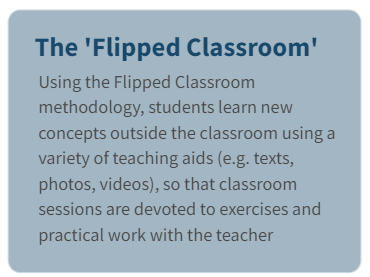Creating inclusive learning environments
Course Summary:
This course on inclusive education is designed to enhance the knowledge base and professional competencies of aspiring special education educators. The aim is to train them in creating inclusive educational environments that cater to diverse needs of all learners. It also targets to help students develop pedagogical techniques that acknowledge and embrace differences within student populations. The curriculum delves into the roles of various stakeholders present within the inclusive school context, offering directions on students’ individualized projects and ways in which they can collaborate with these stakeholders. Participants as well learn to collaboratively construct resources and tools, with an emphasis on digital resources, to enhance the learning experiences of pupils with distinct educational needs.
Course Design:
- International and Interdisciplinary Perspectives
The course covers the broad history, challenges, and global frameworks for inclusive education. Students go over the evolution from disability-focused approaches to the broader perspective of special educational needs (SEN) in one module. Further, the course explores key international documents like UNESCO's 2015-2030 agenda that shape inclusive education on a global scale to delve into the global context.
Another module covers the dynamic landscape of inclusive education, covering specialized assistance, adaptable teaching techniques, and inclusive schooling practices. Here, tailored support through strategies like individualized education plans (IEPs) is advocated and the importance of flexible teaching methods that cater to diverse learning styles is underscored. The course expands the scope of the topic by also addressing challenges like dropout rates and the needs of various student groups, especially those from a disadvantaged backgrounds.
- Active Teaching Methodologies:

The learning content is provided to students in a clear and precise manner, with examples, with frequent checks on the students' understanding by making them perform tasks similar to those shown. Using the Flipped Classroom methodology, students learn new concepts outside the classroom using a variety of teaching aids (e.g. texts, photos, videos), so that classroom sessions are devoted to exercises and practical work with the teacher.
Students are expected to explore a new theme, search for resources, prepare a presentation or an activity, with class time then devoted to debates, group work and discussions.
During the course, students also visit both virtual or real classrooms. Here, students experience inclusive and adapted facilities and structures along with a plethora of digital tools that they can directly implement in the teaching of their courses.
- Formative Assessments and Feedback:
Two crucial factors define the learning context: the unique attributes of learners and the nature of the proposed activities. Grounded in these elements, the students are expected to craft a lesson and establish the setting. Feedback entails a collective assessment of a professional scenario.
After completing the course, educators are expected to understand the shift from exclusion to inclusive education. This insight will enable them to establish fair learning environments and effectively advocate for inclusive education.
In the following video, you can watch designers of the course explain their motivations, processes and experiences of implementing the course:
Contact:
Magdalena KOHOUT-DIAZ,
